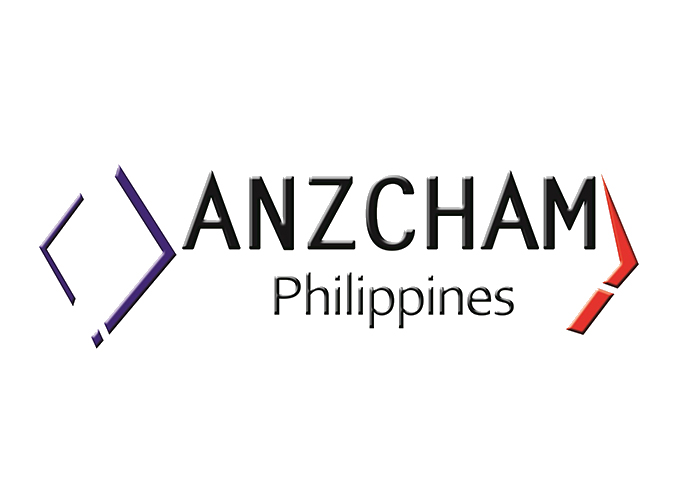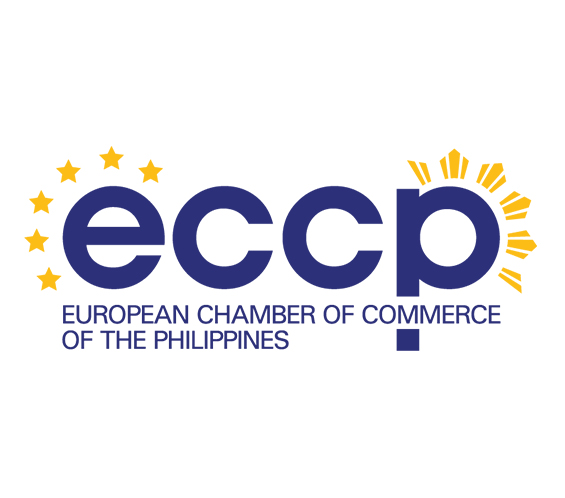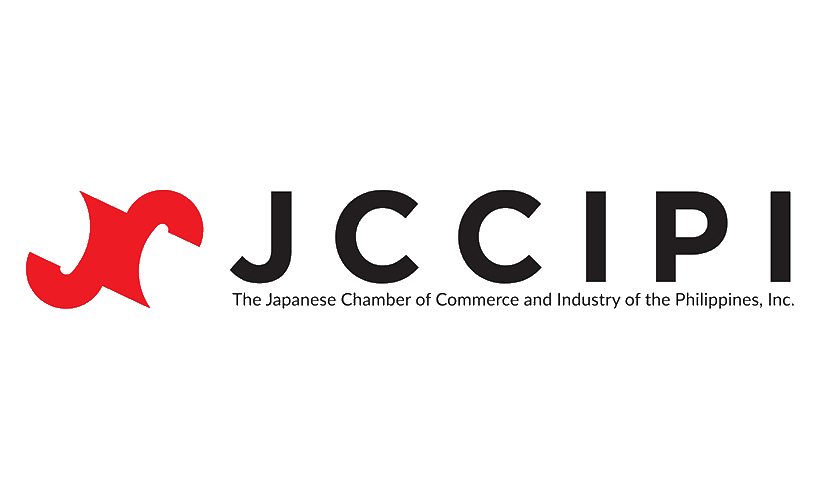A bucket list for PNoy presidency: FOI, Mamasapano, BBL & more
March 12, 2015 at 15:52
IN THE TWILIGHT of his presidency, what “unfinished priorities” should top the bucket list of Benigno S. Aquino III’s administration?
To the captains of business like Ramon del Rosario, chairman of the Makati Business Club, a few urgent and important things should command the administration’s unqualified attention in its last 16 months in office.
Del Rosario, in a speech he delivered on Tuesday at the Fourth Arangkada Philippines Anniversary Forum in Makati City, posits a fairly long list of what he called the “priority measures of the business community for 2015-2016.”
He may be faulted for the volume and verbiage of his proposals but possibly not for speaking out. Del Rosario was among the top businessmen who had supported Aquino from when he launched his bid for the presidency, and throughout his 56 months in power.
In del Rosatio’s mind, in his final months, the Aquino administration would do well to:
* Pass the Freedom of Information law, a “most critical” piece of legislation “to institutionalize the gains of the last 56 months” and to nurture “a culture of transparency and accountability” in the public sector.
* Bring the Bangsamoro Basic Law back on legislative track quickly, carry out the peace process to fruition, but also render a “dull accounting” of the “complete facts surrounding the Mamasapano incident” to meet the demands of justice.
* Amend “the restrictive economic provisions of the Constitution as “to determine which areas of the economy should be opened to increased foreign participation” and to shore up economic growth,” as well support legislative measures to create a Department of Information and Communications Technology to “give appropriate focus and support to a sector that should continue to experience dynamic growth,” “a well-crafted Competition Law”, and amendments to the Build-Operate-Transfer Act to “institutionalize the big-ticket project procurement” process.
* The judiciary may also rush trial of the multiple murder case resulting from the Maguindanao massacre in which 58 persons, including 32 media workers, were killed in November 2009. As a complementary effort, the executive may initiate investigation into the unexplained wealth of the Ampatuan clan that stands accused as mastermind of the massacre.
“The case has been ongoing for more than five years” and Del Rosario notes that “it is important in terms of maintaining our people’s faith in our justice system.”
“If a crime as blatant as this is not successfully prosecuted and the perpetrators put to jail, how can we trust our judicial system?” he asked. “With this important trial proceeding at a sluggish pace, questions arise as to whether the government is exerting everything in its power to ensure a speedy and fair resolution.”
And as “a final point and challenge,” del Rosario said that “perhaps the most critical test for this administration in terms of preserving its gains is the choice of the presidential candidate who will continue the good governance and development agenda, who will enjoy the endorsement of what I still believe is a respected and popular president, and who will have the support of the administration’s political party and machinery.”
He did not make any reference to the emerging and willing top candidates of the LP, including Interior and Local Government Secretary Manuel “Mar” Roxas II, but del Rosario cited the need for Aquino to marshall his allies to consensus behind his anointed successor and avoid bringing the nation to a “two steps forward and three steps backward” situation.
“We have already had previous experience where an incumbent president was unable to gather a consensus among his allies for a winnable and worthy successor and the result was ultimately more than a decade of lost opportunities for our country,” del Rosario said, “We must not let this come to pass again.”
“I am sure,” he said, “that everyone in this room wants the Philippines to break away from our tendency to take two steps forward and three steps backward, and that effort to unchain ourselves from that trend must start right now.”
The full text of del Rosario’s speech follows:
MAKING GROWTH INCLUSIVE – PRIORITY MEASURES
OF THE BUSINESS COMMUNITY 2015-2016
By Ramon R. Del Rosario Jr.
Chairman, Makati Business Club
First of all, thank you for this great honor of addressing you at the fourth anniversary forum of Arangkada Philippines. Arangkada is an excellent venue for constructive dialogue, where the private sector speaks with a unified voice on specific ways by which the Philippines can further accelerate its progress, while government has the opportunity to update the business community on the tangible measures it seeks to implement towards sustained and inclusive growth.
The Aquino administration is now entering the homestretch of its term. There are now only 16 months remaining to institutionalize the much-needed and long-overdue reforms that will ensure that the considerable gains of the last four-and-a-half years will not be reversed. After all, the President himself stated in his inaugural address that he wants strong institutions to be the legacy of his term—and this is a goal that the business community wholeheartedly supports.
To give credit where it is due, the Aquino administration deserves high marks for its excellent handling of our economic fundamentals. Congratulations indeed to Secretary Purisima and the other members of the Economic Development Cluster for laying rock solid foundations for our economy even in the face of numerous natural and man-made calamities we have had to face.
The Aquino government also deserves much credit for its transparency initiatives, as we recognize the contributions that Open Data Philippines, the Budget and Customs ng Bayan webportals, and the visible online presence of the Official Gazette, among others, bring to our good governance agenda and to the development of a culture of greater transparency and accountability.
In international relations, the Aquino administration likewise deserves credit for the very principled position it has taken of insisting on resolving our maritime disputes through the rule of law, which has gained the country unprecedented admiration and respect in the community of nations. Of course, this is in addition to the excellent work being done in economic diplomacy, especially with our country’s hosting of APEC this year. The government can certainly count on the private sector’s support as we prepare for the APEC Economic Leaders’ Meeting later in November.
Clearly we are in much better shape today than we have been for the last 16 years. And with the growth momentum of the last three years, including the strong growth of the entire 2014, most especially the vigorous growth of the 4th quarter, we looked forward to a very dynamic 2015.
Then, 37 days ago came Mamasapano and with it, questions on whether this unfortunate tragedy would threaten to reverse all that we have achieved these past four-and-a-half years and possibly usher the country into another long period of lost opportunities and unrealized potential.
It was in this context that many of us in the business community issued a statement calling for sobriety, courage and unity. The statement appropriately expressed the business community’s utmost respect and sympathies to the families of the gallant policemen of the PNP Special Action Force, and the families of our brother Muslim Filipinos and the innocent civilians who perished in that tragic encounter.
But we noted too that in the midst of our collective grief, certain groups and individuals have called for all-out war in Mindanao, carelessly branded our fellow Muslim Filipinos as terrorists, cast doubt on the Bangsamoro Peace Process and the sincerity of our negotiators, and vigorously demanded the resignation of the President. We lamented that such brinkmanship tactics have put at risk the entire peace process, which the government and our local and international partners have painstakingly worked on for decades, and the laudable milestones that the country has achieved since 2010. Thus, we declared that we do not and will not support calls for an all-out war and for the resignation of President Aquino, as we declared our continuing support for the Bangsamoro peace process.
As we further said in our statement, political manipulation must not be allowed to take advantage of legitimate emotion and grief to the point that reason will be discarded and all the gains we have made will be undone. Rather, we appeal for sobriety, courage, and unity, as we channel our energies towards reconciliation and a genuine search for truth and justice.
In reiterating our support for the Bangsamoro Peace Process we said that there is no other alternative to guarantee the aspirations of the Bangsamoro people but total and lasting peace, and the passage of the Bangsamoro Basic Law is a crucial component in the overall strategy for peace in Mindanao. We therefore appeal to the Aquino administration and all parties involved to put the peace process back on track at the earliest time possible.
To achieve this, the complete facts surrounding the Mamasapano incident must still be satisfactorily established and the demands of justice must be served. Thus, we also call on the PNP Board of Inquiry, the Armed Forces, the MILF, the Department of Justice, and Congress to complete their investigations at the soonest time possible and render their reports to the nation. But as these inquiries are unlikely to fully satisfy the public, it is likely that President Aquino, as our Commander in Chief, will have no other recourse but to himself give the Filipino people a full accounting of the incident that lets all the chips fall where they may. Indeed, only with a full and satisfactory accounting will our common pursuit of justice be possible, and only when justice is satisfied can the peace process move forward.
While I fully support putting the peace process back on track as early as possible, with the hope of still passing the Bangsamoro Basic Law and implementing the required referendum in the next 16 months, I share the pessimism of many that the prevailing environment and the shortage of time may no longer allow all the work to be done in this limited period. But I certainly do not see this as an argument to give up on Peace in Mindanao. I see it as another reason to be very discriminating about our choice of leader in 2016!
Getting the Bangsamoro peace process back on track early is also critical in order that we as a nation can maintain the forward momentum we have gained over the past 56 months. We have much work ahead not only to institutionalize our gains, but also to fully realize the vast potentials that are now within our reach. The public and private sectors must come together to place the country on a continuous path towards progress and development and this requires an assertive effort to focus on unfinished, but certainly critical, priorities.
Let us first review our legislative priorities.
If we truly wish to institutionalize the gains of the last 56 months, the most critical among these is the Freedom of Information Bill, which I continue to hope will finally pass in the House of Representatives this year as promised by no less than Speaker Belmonte. I earlier mentioned some of the government’s transparency initiatives; however, we strongly support the FOI bill as it will institutionalize the culture of transparency and accountability that President Aquino has initiated. The first FOI bill was filed all the way back in 1987 in compliance with the Constitution. 28 years is certainly too long a time for a Constitutional mandate and a basic right to remain unrealized. The FOI bill must be passed so that our noteworthy good governance gains will be largely irreversible and sustained in subsequent administrations.
Next, I would like to strongly reiterate our call to amend the restrictive economic provisions of the Constitution as embodied in House Resolution No. 1 by Speaker Feliciano Belmonte. This amendment will give Congress the flexibility to determine which areas of the economy should be opened to increased foreign participation based on thorough deliberations from the committee level to the plenary. The Philippines is among the very few nations with specific economic restrictions lodged into its constitution, whereas a large number of countries subscribe to the principle of allowing their legislatures to determine economic policy. There is no better time than now to accelerate the process of opening up our economy as we host the annual meeting of APEC, which champions policies of open markets and enhanced investments and trade among its member economies.
We also believe that engaging in economic Charter Change will be beneficial for the medium- and long-term, especially in this period of ASEAN integration and the improved attractiveness of the Philippines as an investment destination. Significantly, greater openness in certain sectors is a prerequisite to joining high-level agreements such as the Trans-Pacific Partnership. Research by Dr. Cesar Cororaton of the Virginia Polytechnic Institute and State University said that Philippine exports are seen to rise significantly with TPP membership. Also consider that since a good number of our major trading partners, such as the United States, Japan, Malaysia, Singapore, and Vietnam, are part of the TPP, we definitely cannot afford to be left out of this agreement and face severe handicaps in future trade with these countries.
I would also like to add my support to well publicized initiatives from business for the creation of a Department of Information and Communications Technology, which will give appropriate focus and support to a sector that should continue to experience dynamic growth. Critical also to maintain our growth momentum is a well-crafted Competition Law to promote a level playing field in our country and further improve our investment climate. Finally, we fully support the passage of the amendments to the Build-Operate-Transfer Act, which will institutionalize the PPP Center and its various mechanisms, and further strengthen the present processes in big-ticket project procurement.
Allow me now to move to the judiciary.
The Maguindanao massacre case has been ongoing for more than five years. I think this case is important in terms of maintaining our people’s faith in our justice system because if a crime as blatant as this is not successfully prosecuted and the perpetrators put to jail, how can we trust our judicial system? With this important trial proceeding at a sluggish pace, questions arise as to whether the government is exerting everything in its power to ensure a speedy and fair resolution. While this complicated case involves powerful individuals with significant resources at their disposal, there are actionable steps that can be done to expedite the cases. For instance, a prominent law dean suggested that the cases against the Ampatuans be separated and prioritized, so that these will be resolved expeditiously. Access to assets and outside communications of the accused can also be severely curtailed to prevent any further intimidation or elimination of witnesses. Certainly, innovative methods of legally and ethically speeding up the resolution of this case, as well as of the cases against former president Arroyo and the senators accused in the Napoles pork barrel scam, can be formulated. In these cases, the defense strategy to delay the proceedings in anticipation of a friendlier administration in 2016 is clear. We implore government to urgently bring all of these to a quick resolution.
Moving now to the executive branch, the most critical priority area is accelerating infrastructure development. Since 2010, we have seen the Public-Private Partnership program steadily gain steam, with about 50 projects of varying sizes in the pipeline due for implementation. By simple observation alone, the country faces a massive infrastructure gap. These mass transportation projects, expressways, seaports, and airports must be rapidly constructed with little to no blockages present.
We are, nevertheless, aware that the awarding of a contract does not guarantee its full and immediate implementation. Another set of challenges emerge after the bidding process which include right-of-way acquisition, imposition of temporary restraining orders by overly active courts, and appeals by losing bidders which are entertained by government. The effective remedy to such concerns is to strengthen our PPP and procurement framework through further refinements of the processes of the various implementing agencies and the amendment of the BOT Law earlier mentioned.
Stability in policy is also important in ensuring adequate electricity supply and price competitiveness. We maintain our position that opening up the Electric Power Industry Reform Act to amendments will result in regulatory uncertainty that may cause the deferment or cancellation of power sector investments. EPIRA aims to privatize the power industry, foster competition, and bring down power prices. The first goal has been achieved, but the critical bridge between the first and the third goal is missing. Thus, what is needed to solve our energy supply and pricing woes is the full and proper implementation of EPIRA. Besides this, investments in more base load and peaking plants must be encouraged by formulating a clear energy security and price competitiveness roadmap with specific targets and timelines—the business community is still looking for such a genuine roadmap.
Just as an aside: You may be aware that we are facing a potential gap in power supply over the next few months. There is a continuing drive for more participants in the Interruptible Load Program being implemented by Meralco, as well as the Retail Electricity Suppliers Association. I encourage corporations with substantial self-generating facilities to sign-up in this program, as well as for government to support this with a well-designed and highly practical energy conservation program. I believe the Department of Energy has already started a communications campaign on these energy conservation tips, and I hope that this will continue and gain more traction in the weeks to come.
In terms of other critical job generating sectors, we note that agriculture continues to perform below its potential. A third of our workforce is employed in agriculture, therefore it is imperative that roadmaps for specific agriculture subsectors be formulated and immediately implemented. Possible models to follow are the roadmaps of the Department of Trade and Industry for certain manufacturing industries. In addition, these roadmaps must be supported by adequate investments that will focus on increasing the productivity and welfare of both our farmers and fisherfolk.
As a final point and challenge, in an opinion article I wrote for the Inquirer last January, I mentioned that what is perhaps the most critical test for this administration in terms of preserving its gains is the choice of the presidential candidate who will continue the good governance and development agenda, who will enjoy the endorsement of what I still believe is a respected and popular president, and who will have the support of the administration’s political party and machinery. That challenge remains and is something that cannot be taken lightly.
We have already had previous experience where an incumbent president was unable to gather a consensus among his allies for a winnable and worthy successor and the result was ultimately more than a decade of lost opportunities for our country. We must not let this come to pass again. I am sure that everyone in this room wants the Philippines to break away from our tendency to take two steps forward and three steps backward, and that effort to unchain ourselves from that trend must start right now.
Ladies and gentlemen, these are just a few of the unfinished priorities that the business community believes will greatly assist us in our shared goal of inclusive growth through job generation, poverty reduction, and global competitiveness. The country is facing a great test brought about by the Mamasapano incident. Nevertheless, this brings with it a choice that we must collectively make as a nation: to unite and work together towards our common aspiration of a progressive Philippines, with peace reigning in the conflict areas in the South, with institutions that are strong and politically mature, and with an inclusive economy that gives every Filipino a fair shot at improving his or her lot in life.
Four Arangkada Forums have already been held. It will definitely be a shame if we enter the fifth Arangkada Forum and a large number of these recommendations, which have garnered the consensus of almost all the major business groups in the country, remain unimplemented. The time to vigorously pursue these reforms is now and we in the Philippine Business Groups and Joint Foreign Chambers are ready and willing to work more closely with government during the endgame phase of this administration.
Source: https://pcij.org/blog/2015/03/04/a-bucket-list-for-pnoy-presidency-foi-mamasapano-reform-laws-etc



























